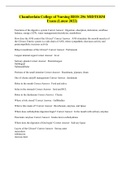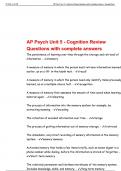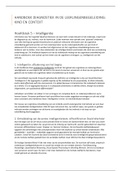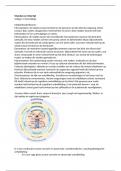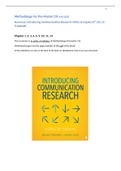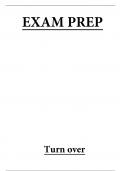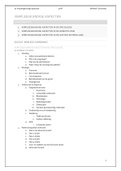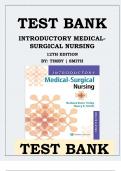Exam (elaborations)
Chamberlain College of Nursing BIOS 256 MIDTERM Exam (Latest 2022)
- Course
- Institution
Functions of the digestive system Correct Answer: Digestion, absorption, defecation, acid/base balance, energy (ATP), water management/electrolytes, metabolism How does the ANS control the GI tract? Correct Answer: ANS stimulates the smooth muscles of the GI tract. Enteric system is a side cha...
[Show more]
